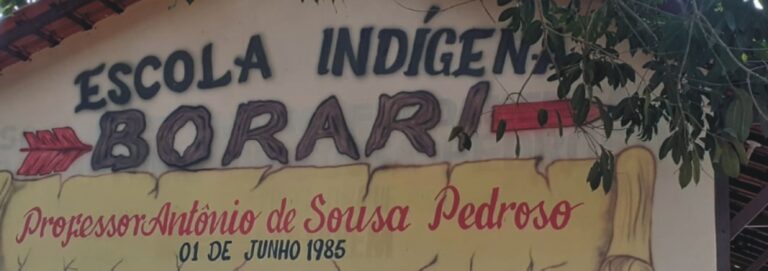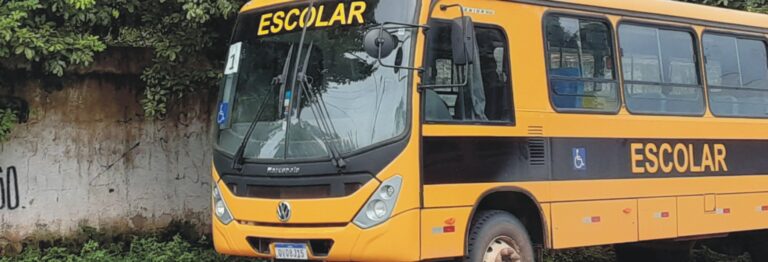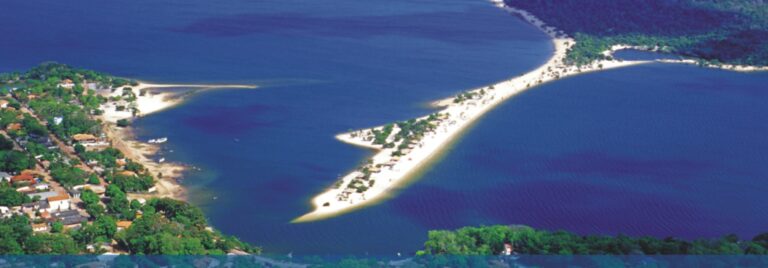Escola Professor Antônio de Sousa Pedroso
Escola Professor Antônio de Sousa Pedroso The Borari school Professor Antônio de Sousa Pedroso (Escola Professor Pedroso) was opened on May 30, 1985, by decree nº 772/85 – DAD. This school is centrally located in the village of Alter do Chão, on Rua Pedro Teixeira, s/n, Tapajós Region, Municipality of Santarém, State of Pará, Brazil. In June 2006, the SEMD coordination communicated to the management of this school that the school would function as indigenous education – as the community has always sought to preserve and maintain it’s Borari cultural identity. As of 2022 this school is under full Borari coordination. ACRAA Collaboration with this School After initial communications with the management of Escola Professor Pedroso in April 2022, ACRAA’s first collaboration with this school consisted of assiting with the preparations for, and then attending as honoured guests, celebrations at the school marking Indigenous Peoples Week. This event occured on…
ACRAA at School
ACRAA at School Project Project Status: Work with Borari schools in Alter do Chão commenced in April 2022. Ongoing. In order to encourage environmental education, we created the ACRAA at School project, which takes activities related to environmental conservation to basic and early childhood education. We believe that the education of young people is essential for building a sustainable future and that there is a ripple effect when children take the knowledge acquired at school to their communities, reaching a greater number of people. According to the Brazilian National Environmental Education Policy, Law nº 9795/1999, Art 1: “Environmental education is understood as the processes through which the individual and the community build social values, knowledge, skills, attitudes and competences aimed at conservation of the environment, a good for common use by the people, essential to a healthy quality of life and its sustainability.” In this sense, ACRAA has been carrying…
School Ceremony April 18/22
Escola Professor Antônio de Sousa Pedroso – Indigenous Peoples Week Ceremony. April 18, 2022 On April 18, 2022 ACRAA was honoured with a role as part of the annual Indigenous Peoples Week ceremononies at the Escola Professor Antônio de Sousa Pedroso. This was an especially big honor as 2022 marks the first year that this school is under Borari coordination. This ceremony commenced just after mid-day with all students of this school attending. After an opening ritual in which we all joined hands and sang, the leaders of this school and community spoke. Thor was also given an opportunity to address the gathering and talk about ACRAA and our alliance with the Borari community, which was a great honor. A small tree planting ceremony then ensued for which ACRAA had made earlier preparations and also provided seedlings. The day also included all those present participating in the Ritual of Sairé.…
Máquina Land
Micro-Agroforestry System on Máquina’s Land Máquina (Cleidson da Conceição) was born in the Alter do Chão area, and has been instrumental in the construction of ACRAA’s water system and nursery (he is a very skilled construction worker). He owns a small partially treed property in a predominantly forested area outside of the village (here to be exact: -2.530419, -54.956013). He requested fruit bearing trees to establish a small agroforestry system on his property, which ACRAA donated to him in April of 2022. Several ACRAA associates (Diego, Daki, Mica, Thor, and along with Máquina) went to this property on April 12 to assist with planting. The photos below illustrate this day. Note the planting was not finished on April 12. Soon we will present photos of the completed work. Photo 1: The plants loaded ready to transport to Máquina’s property. Mica, an ACRAA associate and volunteer, is seen here. Apr.12/22. Photo…
First Planting Ilha do Amor
First Planting on the Ilha do Amor On February 4, 2022, we were honored to participate in a sacred tree planting ceremony on Ilha do Amor (Island of Love), marking our first restoration initiative at this ecologically significant site (Photos 1 to 8). This event represented more than just planting trees – it was a profound act of cultural and environmental healing for land that faces increasing pressure from tourism and climate change. The musical ceremony was beautifully led by Neca Borari, Chief of the local Borari Indigenous community, with drumming accompaniment by Juvenal Ferreira, also from the community. The rhythmic beats and traditional songs created a powerful connection between participants and the land, honoring ancestral traditions of environmental stewardship. ACRAA contributed five large Cumandá seedlings for this inaugural planting. These were particularly special as we planted them alongside their parent trees [1], ensuring genetic continuity and respecting the Borari…
Micro-Agroforestry
Micro-Agroforestry Development Project Status: Seedling donation to landowners commenced March 2022. Project ongoing. In this section we will describe what we are doing with regards to our project initiative called Micro-Agroforestry Development. For a basic definition of “agroforestry,” which is the second branch of the ACRAA tree – follow the link here. What we call Micro-Agroforestry is the planting of agroforestry systems in small properties, especially in regions integrated with urban areas, reforesting and improving people’s quality of life. In all ACRAA projects, we seek to re-signify, together with Amazonian communities, the cultural and economic value of the forest as a form of resistance against the advance of deforestation. We have started this work through the production of hundreds of seedlings, of more than 30 different species. These are mostly fruit producing trees, but also trees that produce wood for civil and naval construction, and in addition other plants such…
Ilha do Amor – Background
The Ilha do Amor and the Beaches of Alter do Chão This page provides some background related to the Ilha do Amor and the ecological problems this area is facing. First, the Ilha do Amor is not an island but a peninsula of sand, with the Tapajós river on one side and Lago Verde (Green Lake) on the other. This formation is also actally a dune, sands transported by wind from beaches to the north-west and north-east during periods of low water, and deposited here. As is the case for rivers throughout the Amazon, there is a large annual fluctuation in the water level here. As a result, during the period of lower water levels (September to December which is the dry season), large expanses of sandy beaches are present. However, when the water level is high (late February-May during the rainy season), much of this peninsula is submerged. Photos…






